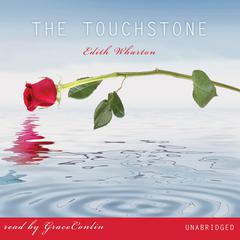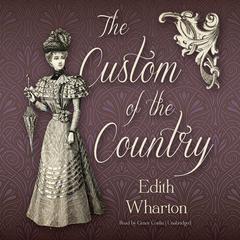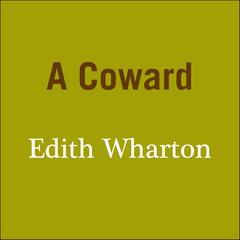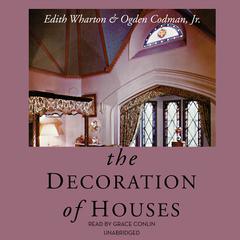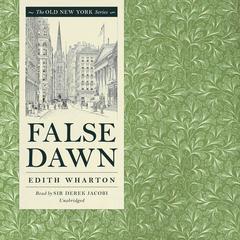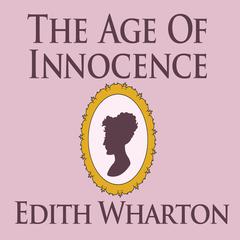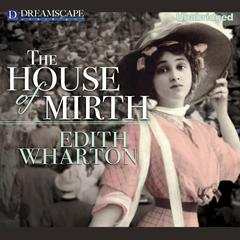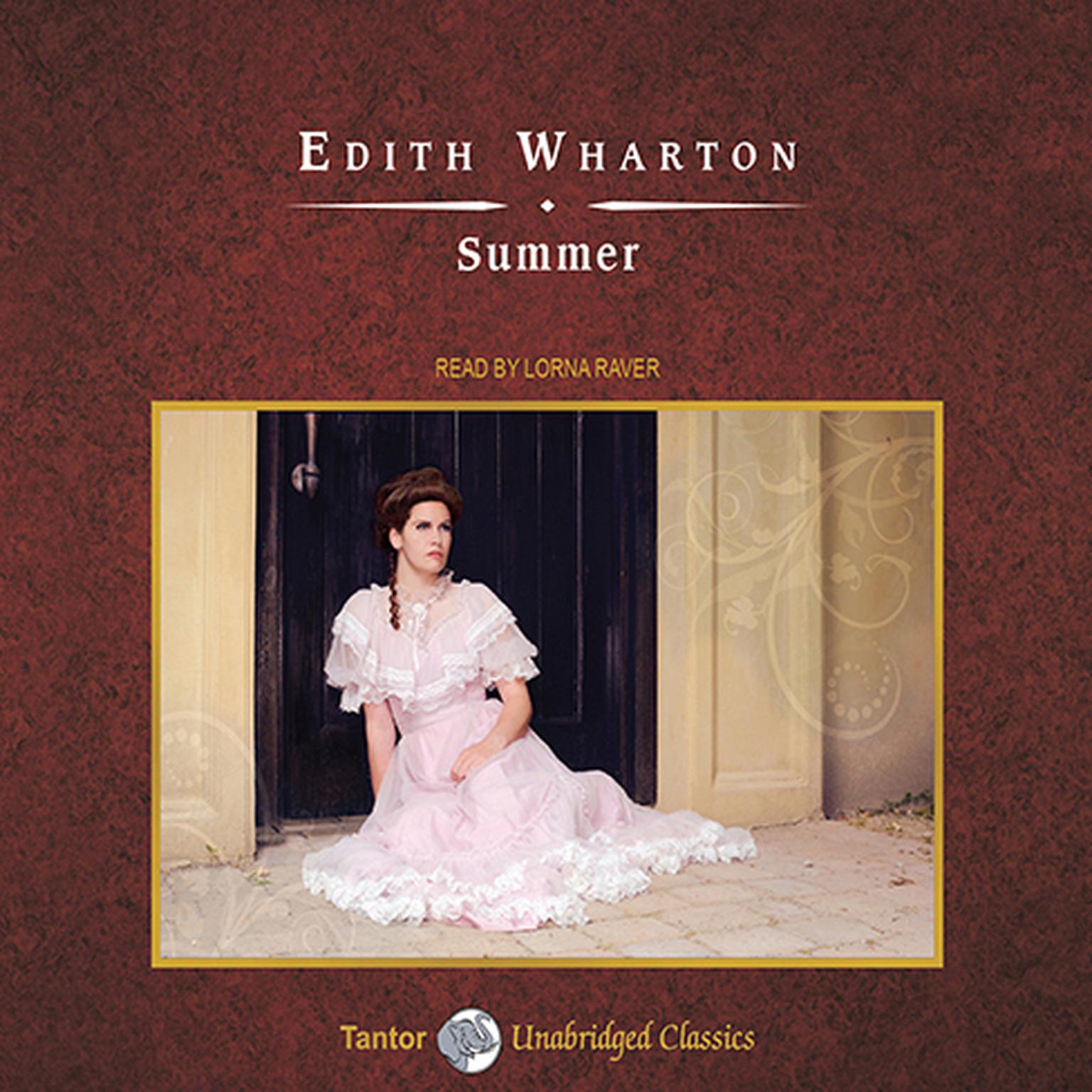 Play Audiobook Sample
Play Audiobook Sample
Summer Audiobook
 Play Audiobook Sample
Play Audiobook Sample
Quick Stats About this Audiobook
Total Audiobook Chapters:
Longest Chapter Length:
Shortest Chapter Length:
Average Chapter Length:
Audiobooks by this Author:
Publisher Description
One of America's first novels to deal frankly with a young woman's sexual awakening, Summer shocked readers with its forthright exploration of desire and sexuality when it was first published in 1917. Set in the Berkshire Mountains of Western Massachusetts, it tells the story of Charity Royall, a young New England woman of humble origins who meets and falls in love with the worldly Lucius Harney, an architect from the city. In evocative and descriptive prose, Edith Wharton conveys the ecstasy of Charity's first experience in sexual and romantic love, and pulls her heroine through the throes of loving a man who ultimately cannot choose her. Wharton's tale elicits the passion and despair of all great but ill-fated love affairs and enthralls the contemporary audience with its pathos just as it did nearly one hundred years ago.
Download and start listening now!
"Wharton - one of my top top favorites - calls this short novel the "hot Ethan Frome" and that's exactly right: it's very similar to EF, and very different from most of her novels, in many ways. And yet - you see glimmers of what become hallmarks for her, for example, her adoptive father and his ways echo or foreshadow Mr. Rosedale, and the internal monologue and subtle and slow change in perception of these men, by each heroine, glimmer with the other. I've always thought of Ethan Frome as so very different from everything else Mrs. Wharton had written, and happened upon Summer; she put it better (above) than I ever could: you have your choice, pick by preferred weather, although I can't not say EF is a must-read. Better than the novella is the short nonfiction piece that the Dover edition has included in its published copy but was not originally published with Summer. It's an article of Mrs. Wharton's called "The Vice of Reading" and it's utterly brilliant and true - I found myself nodding while reading it. It reflects her frustration and distaste for the "sense-of-duty" reader. HIGHLY recommend finding a copy of the piece: it gets five stars."
— Dale (4 out of 5 stars)
Quotes
-
Raver's reading is thoughtful, capturing the warm emotions of the heroine while keeping with the slower pace of Wharton's depiction of the setting.
— AudioFile
Summer Listener Reviews
-
" This was an alright book. By the end I wasn't really sure how I felt about it. I wasn't really sad, but I wasn't filled with warm fuzzies either. It's a nice light read if nothing else. It will only take a day or less to read. "
— Shannon, 2/19/2014 -
" I recognize this as a social comment on women's place in turn of the century USA, and how issues of sexual desires and behavior were "not to be discussed," however, I didn't find it to be the forceful masterpiece I had been led to believe it to be. I was disappointed in its brevity which was not, unlike Ethan Frome, did not render Wharton's message as a piercing social commentary. "
— KK, 2/10/2014 -
" I hated, hated, hated this book!!!! "
— Wendy, 2/10/2014 -
" a great companion piece to Ethan Frome. Impulsive and sensual compared to the cold deliberate EF. Really enjoyed it. It's usually referred to as a very sexual book, but not explicit at all. "
— Alicia, 2/3/2014 -
" This was a required read in college. So glad I did ..... "
— Stephen, 1/31/2014 -
" I didn't like this book in the beginning, but it ended much better than I anticipated. My stumbling block was the main character Charity. She was definitely a victim of circumstances. A young uneducated woman, from a small rural village. She had a biligerent attitude and no motivation to move beyond. No desire for more than society's expectations for women of the era. Marriage. The plot was somewhat predictable. Nevertheless, as the book progressed, the evolution of the characters and events left me on a rollercoaster of both turmoil and benevolence. A sign of a good writer who knows how to manipulate the reader's emtions. I really liked it. "
— Nancy, 1/31/2014 -
" Having read this so soon after Henry James's Daisy Miller, as well as Wharton's own Ethan Frome, my reading suffered a bit from nineteenth-century-female-oppression fatigue. I found the story of Charity Royall, an orphaned girl coming of age in a time and place where no one could answer her questions of blossoming post-adolescence, fairly interesting, but a bit too similar to some of the other pieces I've read recently to really enjoy it immensely. Charity's state of loss as a young woman with no past and future presents a great character study for the time period though, and the final pages I found particularly moving. A good short read that I may look forward to reading again when I can put some physical distance between Wharton and her cohorts. "
— Johnny, 1/31/2014 -
" I don't have much to say about "Summer" at the moment; I've just added this in to get the hang of how this site works, as Gillian was showing me the ropes. Engaging, but not something I'm likely to reread. "
— Da, 1/19/2014 -
" OK, she is a good writer but not her best. "
— Cathy, 1/17/2014 -
" I enjoyed it and it's a quick read. The book is very realistic, yet poetic with a tangible ending. "
— Jocelyn, 1/14/2014 -
" Beautifully written...loved it! "
— Rebekah, 1/10/2014 -
" Loved the complex characters and Edith Wharton's beautifully descriptive style. The plot was fairly predictable, but interesting considering the time when the novel was published, as well as Wharton's own life. I was only disappointed by the unsatisfying ending. "
— Han, 1/8/2014 -
" For Victorian literature, it's not that bad and that's all I can really say about it. It's not a book I'd recommend, but it's also not one that I'd warn others away from. It simply was what it was: naturalism with a bit softer of an end with everything coming right back to where it started. "
— Crystal, 1/7/2014 -
" One of my favorite Edith Wahrton novels! "
— Mary, 1/7/2014 -
" Rates right up there with "The Awakening," but I prefer Wharton's writing and perspectives over Kate Chopin's. "
— Bennet, 1/3/2014 -
" My favorite Edith Wharton. I love this book. "
— Joey, 1/3/2014 -
" Crappy female character. Done. "
— Jinny, 12/29/2013 -
" More like 3.5 stars. It's beautiful at the same time that it's a little sleepy and slow. Much like a summer spent upstate, I suppose. "
— Jennifer, 12/2/2013 -
" Her writing style is so full of detail and beauty that I can't help loving everything she writes. "
— Crystal, 10/4/2013 -
" I loved this book - so much so that I dragged my sister-in-law to see Edith Wharton's home in Lennox, MA. Many of her stories are written about that area & the "locals" can tell you where, for instance, the sledding scene in Ethan Frome was set!! "
— Ciel, 9/9/2013 -
" Another brilliantly told story by Wharton that will make you want to jump off a cliff. "
— Mieka, 8/17/2013 -
" Wharton has a way with the subtle tragedies of everyday life; the painful ending made up for the slow beginning. "
— Rob, 5/17/2013 -
" Really enjoyed the main character, Charity Royalle. I liked that one of her first statements in the book was 'I hate everything'. Charity is an unusual heroine in that she is not well read yet she is very wise. "
— Wendy, 4/27/2013 -
" Not as provocative as I was led to believe, but good literature. "
— Terry, 4/23/2013 -
" That Edith Wharton sure knows how to use the English language. "
— Megan, 3/7/2013 -
" Not a bad book, but such a level of 'Venus Angst', that by the time I was done, I'd actually grown a uterus. (I know, I know, of all the female parts to spontaneously grow.) "
— Bosley, 1/31/2013 -
" This was an alright book. By the end I wasn't really sure how I felt about it. I wasn't really sad, but I wasn't filled with warm fuzzies either. It's a nice light read if nothing else. It will only take a day or less to read. "
— Shannon, 11/1/2012 -
" Edith Wharton what more can. Wonderful story of the sexual awakening of a young woman in New England and the overwhelming social pressure in early 20th century America! The writing is just beautiful....I don't think we find modern day writers such as this....except of course for Niall Williams. "
— Claudia, 10/11/2012 -
" I love how Edith describes things like her scenery and people they are always lush and you can see it right in fron of you. This is a very depressing story so I don't recommend it if someone wants to read something happy. "
— Sarah, 9/11/2012 -
" Eh. Couldn't quite grasp what was happening culturally. "
— Jenwah, 8/30/2012 -
" Lovely and heartrending. Unexpectedly charged with emotion, a beautiful portrait of a "simple" girl in over her head. "
— Janet, 7/7/2012 -
" I should probably reread this because I was in a weird place in life when I first read it. I don't really trust my judgment from that time period. "
— Ashley, 2/21/2012 -
" Edith Wharton certainly does not indulge her readers in flights of romance or happy endings. Her books always reflect the harsh reality of life, as only the books of authors who have had to struggle in their own life can "
— Orlaith, 1/31/2012 -
" B+ Very erotic short novel; shocking in its time "
— Cherie, 1/3/2012 -
" This is a beautifully written short novel about a young woman's awakening to love. "
— Kyle, 12/21/2011 -
" Many elements of this story reminds me of Tess of the D'urbervilles. Whether it is in rural America or the English countryside, Tess and Charity are victims not just of spineless men but of an ignorant, malicious society. Love how Wharton is as effective here as writing about New York upper class. "
— Jennifer, 12/7/2011 -
" I was surprised that this book read so well. For book that was written 90+ years ago, it had very contemporary themes. "
— Denise, 11/23/2011 -
" This book was nothing that I expected. I think it is definitely worth the read. "
— Maxine, 8/20/2011 -
" I was having a need for an Edith Wharton-like book, so what better way to supply the need but a Edith Wharton book. Enjoyable read. "
— Jonan, 6/12/2011 -
" I love the scene where Charity is watching the fireworks with Harley and her guardian Mr. Royall sees her an calls her a whore. He is drunk and with a group of prostitutes. But she is on a simple date and he is superior and calls her a whore. Typical. "
— Caroline, 5/20/2011 -
" I love the scene where Charity is watching the fireworks with Harley and her guardian Mr. Royall sees her an calls her a whore. He is drunk and with a group of prostitutes. But she is on a simple date and he is superior and calls her a whore. Typical. "
— Caroline, 5/20/2011 -
" Not as provocative as I was led to believe, but good literature.<br/> "
— Terry, 5/6/2011 -
" Not as provocative as I was led to believe, but good literature.<br/> "
— Terry, 5/6/2011 -
" Rates right up there with "The Awakening," but I prefer Wharton's writing and perspectives over Kate Chopin's. "
— Bennet, 3/10/2011 -
" Rates right up there with "The Awakening," but I prefer Wharton's writing and perspectives over Kate Chopin's. "
— Bennet, 3/10/2011 -
" I don't have much to say about "Summer" at the moment; I've just added this in to get the hang of how this site works, as Gillian was showing me the ropes. Engaging, but not something I'm likely to reread. "
— Da, 2/23/2011 -
" I don't have much to say about "Summer" at the moment; I've just added this in to get the hang of how this site works, as Gillian was showing me the ropes. Engaging, but not something I'm likely to reread. "
— Da, 2/23/2011 -
" Although I enjoyed this book, it was not my favorite. The end put a very interesting twist into a somewhat dull story. "
— Emily, 2/3/2011 -
" Although I enjoyed this book, it was not my favorite. The end put a very interesting twist into a somewhat dull story. "
— Emily, 2/3/2011 -
" One of my favorite Edith Wahrton novels! "
— Mary, 1/3/2011 -
" One of my favorite Edith Wahrton novels! "
— Mary, 1/3/2011 -
" Victoriana at its best, I think. "
— Kate, 12/30/2010 -
" Victoriana at its best, I think. "
— Kate, 12/30/2010 -
" I really loved the writing and narrating of this but I was a bit icked out by the ending. Wait, did this fallen woman really just marry her stepfather? Is this where Woody Allen got the idea that it would be okay? "
— Anna, 12/14/2010 -
" I really loved the writing and narrating of this but I was a bit icked out by the ending. Wait, did this fallen woman really just marry her stepfather? Is this where Woody Allen got the idea that it would be okay? "
— Anna, 12/14/2010
About Edith Wharton
Edith Wharton (1862–1937) is the author of the novels The Age of Innocence and Old New York, both of which won the Pulitzer Prize for Fiction. She was the first woman to receive that honor. In 1929 she was awarded the American Academy of Arts and Letters Gold Medal for Fiction. She was born in New York and is best known for her stories of life among the upper-class society into which she was born. She was educated privately at home and in Europe. In 1894 she began writing fiction, and her novel The House of Mirth established her as a leading writer.
About Lorna Raver
Lorna Raver, named one of AudioFile magazine’s Best Voices of the Year, has received numerous Audie Award nominations and many AudioFile Earphones Awards. She has appeared on stage in New York, Los Angeles, and regional theaters around the country. Among her many television credits are NYPD Blue, Judging Amy, Boston Legal, ER, and Star Trek. She starred in director Sam Raimi’s film Drag Me to Hell.












